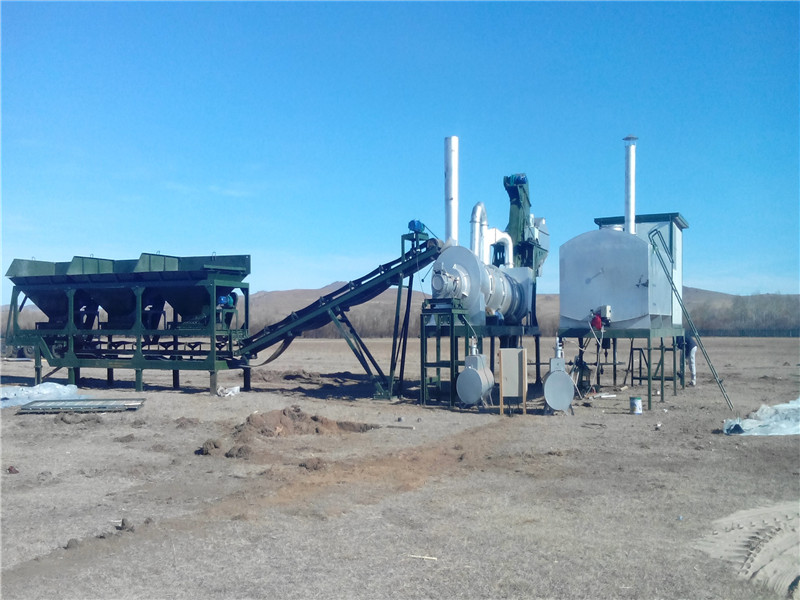Mobile asphalt plants have revolutionized the way we produce asphalt for road construction projects. Unlike traditional stationary plants, these mobile versions offer unparalleled flexibility and efficiency, making them an indispensable tool for construction companies, municipal authorities, and road builders worldwide.

A mobile asphalt plant is a self-contained unit that is mounted on wheels and can be transported to different job sites with ease. While the specific components may vary slightly from manufacturer to manufacturer, the general elements of a mobile asphalt plant include:
The aggregate feeder system is the heart of the asphalt plant, responsible for storing, transferring, and feeding the various aggregates, such as sand, gravel, and stone dust, into the plant. This process ensures the proper mix proportions and consistency, crucial for producing high-quality asphalt.
The drying drum is where the aggregates are heated and dried to remove any moisture content. This essential step ensures that the asphalt mix adheres properly and is free from potential defects that could compromise the road's durability.
The mixing unit is responsible for blending the heated aggregates with bitumen and other additives, such as mineral fillers and asphalt cement. This process creates the final asphalt mix, ensuring that all components are uniformly distributed for optimal performance.
Bitumen storage tanks hold and heat the bitumen before it is added to the mixing unit. Proper temperature control is critical to achieve the desired consistency and workability of the asphalt mix.
The control panel is the nerve center of the mobile asphalt plant, where operators can monitor and adjust various parameters, including aggregate proportions, temperature, and mix composition. Advanced control systems have made these plants highly automated, reducing human errors and increasing efficiency.
Mobile asphalt plants offer several advantages over their stationary counterparts, making them the preferred choice for many road construction projects:
The primary advantage of mobile asphalt plants is their mobility. They can be easily transported from one site to another, reducing the need for multiple stationary plants and saving both time and money.
Mobile asphalt plants can be set up and dismantled relatively quickly, enabling rapid deployment to meet urgent project deadlines. This flexibility ensures that road construction projects stay on track without unnecessary delays.
Asphalt production using mobile plants can be more cost-efficient for smaller projects or when working in remote areas. The ability to move the plant to the construction site reduces transportation costs and minimizes the need for multiple infrastructures.
Mobile asphalt plants are equipped with advanced emission control systems, ensuring compliance with environmental regulations. They minimize air pollution and have a lower carbon footprint compared to stationary plants.
Mobile asphalt plants are designed to produce high-quality asphalt mixes consistently. The precise control over mix proportions and temperature ensures that the final product meets stringent quality standards.
In conclusion, mobile asphalt plants have revolutionized the road construction industry by providing unparalleled flexibility, efficiency, and cost-effectiveness. The ability to transport the plant to different job sites and the quality of asphalt produced make them a game-changer in the field of road-building endeavors.
Previous: Horizontal Flow Wrapper Packing Machine
Copyright:@2020-2021
Comments Please sign in or sign up to post.
0
0 of 500 characters used